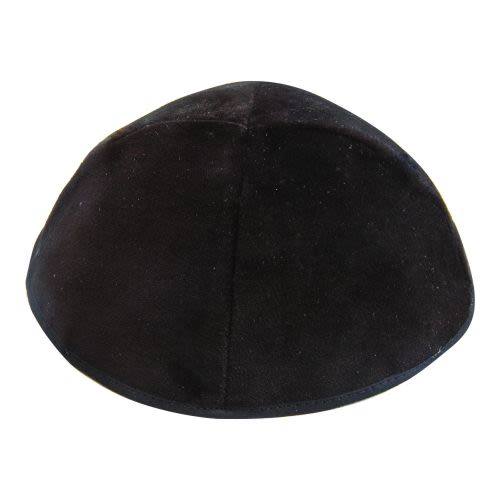
A Gift from Olaf
The alcohol tragedy: broken humans that were once beautiful little babies, loved for a least a minute at some point. They had dreams, had hope, yet now are...

“If you believe that you can ruin something, believe that you can correct it.” – Rabbi Nachman of Breslov.
If Rabbi Nachman of Breslov says that what we wreck can be fixed, it’s absolutely true. The Rebbe was a genius, a tzaddik of the highest order. But getting the truth of that statement to travel from my brain the million miles to my heart is not so easy. My Yetzer Hora is pretty loud, and never misses a day of work, so I need to see the truth of Rabbi Nachman’s claim over and over to even begin to believe it. In the spirit of this principal, my husband and I named our son’s his middle name after an uncle whose life exemplified this truth. For the sake if this story we’ll call this man Olaf.
Olaf had a life full of ruin, to put it mildly. Tragically, his mother, of blessed memory, passed away when he was just a few years old, leaving his father alone with three young children. The whys, hows, and whats are vague – but what isn’t is that Olaf’s father turned to drink to alleviate the pain and inadvertently created even more ruin for his already suffering children. It got so bad that sane people intervened and removed Olaf’s sister from the home placing her with relatives – but for reasons only Hashem can understand chose to leave the two young boys with their deeply troubled father.
The home was hellish for the two brothers left there. They had to fend for themselves in ways no child should. Olaf recalled that out of desperation – when he was a very small child – placing a handful of cereal he found in a cabinet on the table and pouring milk on top and trying to eat it with his hands – no bowl, no utensils.
But he was a fighter and survived his upbringing. Well, I should say he survived physically, but spiritually he was battered and exhausted. Tragically, as so often occurs, he turned to drink early in life to run from the pain. Olaf became an alcoholic. For decades he drank from sun up to sun down, quantities that would kill a strong person. Eventually alcohol killed both his father and brother.
One would think that having seen what alcohol did to his father and brother, it would sink in for poor Olaf. The world was screaming to him, “Olaf! Yes you! Step away from the bottle. Don’t drink that. Don’t smoke that either! Just stop.” But when we disconnect from Hashem on such a level, we become deaf – and blind to boot. (Rabbi Brody explains this principal beautifully in The Trail to Tranquility.) I picture the Yetzer Hora sitting on his throne in Olaf’s head, twiddling his thumbs, eating pealed grapes, thinking he had the easiest job on earth with this guy. So why did we name our son after him? Patience, dear reader…
We have all been walking through a park and seen down-and-outers passed out on a bench. Or maybe even stuck halfway in a shrub. And this always strikes decent people as being a tragedy. It makes you heartsick. These poor disheveled people were once beautiful little babies, someone had to love them for a least a minute, at some point. They had dreams, had hope, had some kind of peace, yet there they are on the brink of death with no shame, passed out in a public place. Well, that was Olaf for many years of his life. By the grace of Hashem, Olaf lived in a country with amazing social services so he was not treated like garbage and thrown to the curb. He had a place to live and food provided by the state, so he lived, sort of.
One day Olaf had a weird experience while getting drunk in his apartment with his boozing buddy. Something came to him in a light in his kitchen, of all places, and started talking to him, reassuring him, making him feel love, shock and disbelief. The Yetzer Hora woke up and Olaf wondered if this was the alcohol talking to him, or finally pushing him into total lunacy. He tried to shake it off and continued with his plan for the day. The Yetzer Hora breathed a sigh of relief.
Well, the next day the light came to him again. And despite the fact that the Yetzer always shows up for work early, a flame within Olaf was lit. After decades of waste and pain and ruin, Olaf went to rehab. He fell in love with sobriety. He fell in love with life. With smells. With colors. With trees. With people. With puppy dogs. With Hashem. He embraced life with such vigor he opened his own drug and alcohol rehab facility and lectured around the country on dependency issues. He found a woman he loved and even adopted a wonderful young lady he had taken under his wing. Through his facility, people who were spiraling downwards steadied themselves and embraced life as Olaf had. And we were blessed to have friendship with this quiet, humble, and strong man.
After ten years of sobriety Olaf discovered that although he was spiritually healthier than ever, the abuse on his body had been too much. Not ironically, he got cancer of the liver. He fought it to the best of his ability, but eventually his body was clearly losing the battle that his spirit would not.
Even though he wanted so much to keep living, for he saw every moment as a gift. In the midst of this disease eating away at him he had no problem saying that every second he lived as a sober man was a miracle provided by Hashem, so he couldn’t feel robbed. Hashem had let his candle burn for ten more years, even though Olaf had wasted decades.
So we named our son after Olaf. Because although it took him awhile, Olaf grabbed the Yetzer Hora by the throat and didn’t let go. In the ten sober years he had, he saved lives. He went into the trenches, into the shrubs, to that line in front of the liquor store at 9:00 AM and shouted down the Yetzer Hora. Olaf taught people how to fight the worst kind of darkness – to never, ever give up. Hashem loves the little guys who won’t give up, who believe that a life can be repaired.











Tell us what you think!
Thank you for your comment!
It will be published after approval by the Editor.